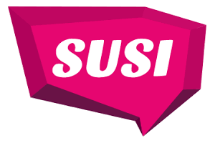-
Courses

Courses
Choosing a course is one of the most important decisions you'll ever make! View our courses and see what our students and lecturers have to say about the courses you are interested in at the links below.
-
University Life

University Life
Each year more than 4,000 choose University of Galway as their University of choice. Find out what life at University of Galway is all about here.
-
About University of Galway

About University of Galway
Since 1845, University of Galway has been sharing the highest quality teaching and research with Ireland and the world. Find out what makes our University so special – from our distinguished history to the latest news and campus developments.
-
Colleges & Schools

Colleges & Schools
University of Galway has earned international recognition as a research-led university with a commitment to top quality teaching across a range of key areas of expertise.
-
Research & Innovation

Research & Innovation
University of Galway’s vibrant research community take on some of the most pressing challenges of our times.
-
Business & Industry

Guiding Breakthrough Research at University of Galway
We explore and facilitate commercial opportunities for the research community at University of Galway, as well as facilitating industry partnership.
-
Alumni & Friends

Alumni & Friends
There are 128,000 University of Galway alumni worldwide. Stay connected to your alumni community! Join our social networks and update your details online.
-
Community Engagement

Community Engagement
At University of Galway, we believe that the best learning takes place when you apply what you learn in a real world context. That's why many of our courses include work placements or community projects.
Community, Youth & Family Studies
BA in Community, Youth and Family Studies
College of Arts, Social Sciences & Celtic Studies- Title of Award
- Degree
- Course Code
- BCYF1
- Delivery
- Blended Learning
- NFQ
- 8
- Award Type
- Major
- Duration
- 4 years, part-time
- ECTS Weighting
- 180
Why Choose This Course?
Course Information
This distance learning course is a four-year, part-time course in Community, Youth and Family Studies. Students are awarded a University of Galway Diploma in Arts (Community, Youth and Family Studies) upon successful completion of the first two years of the course and a Bachelor of Arts in Community, Youth and Family Studies on completion of the four-year cycle. This course is designed to enable participants to further develop and enhance their understanding, knowledge and skills relevant to Family, Youth and Community work practice and policy in Ireland or abroad. The main focus of the Degree course will be on Community, Youth and Family studies, but will broadly incorporate community development, family support, adolescence, childcare, health, political and general socio-economic studies.
Core open learning materials, developed by University of Galway practitioners and experts in the field of Community, Youth and Family support, will be provided to students at the start of the course.
A University of Galway Diploma in Arts (Community, Youth and Family Studies) is awarded on attaining 90 credits and a Bachelor of Arts in Community, Youth and Family Studies degree on attaining 180 credits. The BA course is devised on a modular, credit basis. Each module carries a specific number of credits. The maximum number of credits that a student can attain each year is 45 credits.
Curriculum Information
Curriculum information relates to the current academic year (in most cases).Course and module offerings and details may be subject to change.
Glossary of Terms
- Credits
- You must earn a defined number of credits (aka ECTS) to complete each year of your course. You do this by taking all of its required modules as well as the correct number of optional modules to obtain that year's total number of credits.
- Module
- An examinable portion of a subject or course, for which you attend lectures and/or tutorials and carry out assignments. E.g. Algebra and Calculus could be modules within the subject Mathematics. Each module has a unique module code eg. MA140.
- Subject
- Some courses allow you to choose subjects, where related modules are grouped together. Subjects have their own required number of credits, so you must take all that subject's required modules and may also need to obtain the remainder of the subject's total credits by choosing from its available optional modules.
- Optional
- A module you may choose to study.
- Required
- A module that you must study if you choose this course (or subject).
- Required Core Subject
- A subject you must study because it's integral to that course.
- Semester
- Most courses have 2 semesters (aka terms) per year, so a three-year course will have six semesters in total. For clarity, this page will refer to the first semester of year 2 as 'Semester 3'.
Year 1 (45 Credits)
RequiredSP1105: Introduction to Learning - 5 Credits - Semester 1RequiredSP124: Introduction to Sociology - 5 Credits - Semester 1
RequiredSP127: Understanding Communities - 10 Credits - Semester 1
RequiredSP147: Youth & Society - 5 Credits - Semester 1
RequiredSP1123: Groupwork & Community Leadership - 10 Credits - Semester 1
RequiredSP1110: An Introduction to Family and Society - 5 Credits - Semester 1
RequiredSP1113: Social Research Skills - 5 Credits - Semester 1
Year 2 (45 Credits)
RequiredSP2121: Critical Thinking for the Social Sciences - 10 Credits - Semester 3RequiredSP2112: Safeguarding Children, Young People and Vulnerable Adults (Approved) - 5 Credits - Semester 3
RequiredSP136: Politics and Policy Making - 10 Credits - Semester 3
RequiredSP2106: Volunteering: Theory, Policy and Practice - 5 Credits - Semester 3
RequiredSP2105: Youth Work Principles & Practice - 5 Credits - Semester 3
RequiredSP2110: Issues in Contemporary Families (Approved) - 5 Credits - Semester 3
RequiredSP2102: Writing a Research Proposal - 5 Credits - Semester 4
Year 3 (45 Credits)
RequiredSP192: Community & Family Studies: Independent Research Project 3 - 10 Credits - Semester 5RequiredSP191: Research Methodology in the Social Sciences - 10 Credits - Semester 5
RequiredSP190: Family & Societal Interactions - 10 Credits - Semester 5
RequiredSP137: Childhood & Adolescence - 10 Credits - Semester 5
RequiredSP197: Families and the Law - 5 Credits - Semester 5
Year 4 (45 Credits)
RequiredSP161: Community & Family: Project Planning, Development & Evaluation - 10 Credits - Semester 7RequiredSP163: Equality & Diversity - 10 Credits - Semester 7
RequiredSP164: Life Long Learning: Policy & Practice - 10 Credits - Semester 7
RequiredSP162: Research Project - 15 Credits - Semester 7
This is a broad educational course which places specific emphasis on knowledge and skills for personnel working within a broad range of sectors which seek to support and enable families and communities to function effectively within society. It is designed specifically to create accessible, student-centred learning opportunities within the Social Sciences.
There are many career opportunities open to graduates of the B.A. in Community, Youth and Family Studies degree as it offers a solid foundation and understanding of the social science discipline. Some graduates have progressed onto postgraduate study in Social Work and Life Course (Family Support) studies while other graduates of the B.A. course have gained employment as community development and family support workers.
The modular structure of the course allows students to proceed at their own pace. A series of one- to two-day workshops are scheduled throughout the academic year (September to May) which students must attend – this equates to approximately one workshop per month. Students must attend workshops and submit an assignment for each module. Students must also submit a project at the end of each year of study. A proportion of marks are also allocated to written examinations.
If you do not meet the standard entry criteria for this course, you may gain entry through our Recognition of Prior Learning (RPL) policy. Applicants may also be able to earn module exemptions based on their prior learning. Find out more here.

Accreditations & Awards
Meet our Employers
Entry Requirements and Fees
Formal academic qualifications are not required to commence the BA in Community, Youth and Family Studies. Students should have appropriate experience in Youth, Family, or Community work and must be in a position to undertake course assignments and projects relating to practical aspects of Community, Youth, and Family Studies.
Entry requirements for part-time students can be found here (i.e. age, english language requirements etc.).
Applications are made online via the University of Galway Applications System. This course is listed under Adult Learning Undergraduate\Postgraduate, CPD, Micro-credentials & Summer School Applications.
Please visit our How to Apply page for Application tips and Supporting Documents information.
| Course Type | Year | EU Tuition | Student Contribution | Non-EU Tuition | Levy | Total Fee | Total EU Fee | Total Non-EU Fee |
|---|
SUSI Funding
This course is now eligible for funding under the SUSI grants scheme. You can find more information regarding the SUSI funding here.

Gail Cassidy
Tel: 091 495241
E-mail: gail.cassidy@universityofgalway.ie
Why University of Galway?
World renowned research led university nestled in the vibrant heart of Galway city on Ireland's scenic West Coast.
Downloads
Meet Our Alumni
Introduction
This course was developed in response to the continuing education needs of personnel working in community/voluntary and state sectors actively supporting Community, Youth and Family life in a rapidly changing society. It is an interdisciplinary programme drawing upon selected components of Sociology, Politics, Community Development, Family Studies and Law.


























